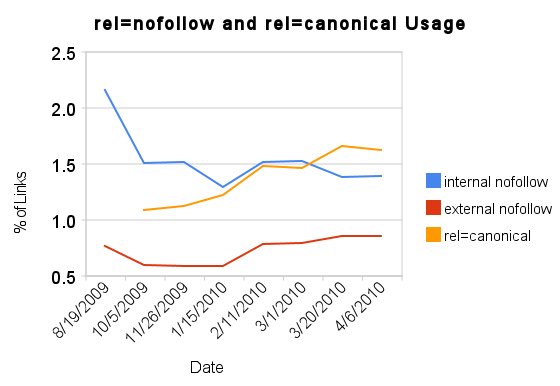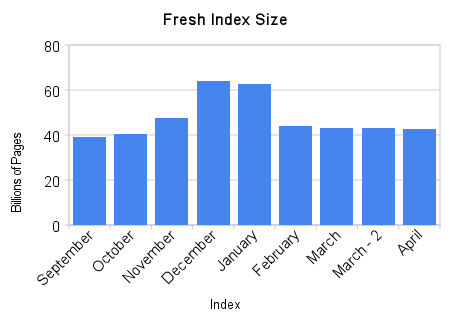Linkscape Update, New Stats and an API Dashboard
Update: Why did my Domain Authority change?
In this index update we re-calibrated our Domain Authority metric to better reflect the relationships between all domains on the Internet. This means that many websites' Domain Authority (DA) changed.
Not to worry! If your domain authority went down, so did all of the other domains that had similar link profiles before the index update. (Don't think about it like something bad happened to your site, think about it like we changed how we view the entire Internet) You can read more about why we did this in the section below.
The good news is, we have an index update for you! And it's a couple of days sooner than previously announced. The bad news is, things were, as you might have noticed, a little rocky this morning. We had more traffic to the API than ever before, and, through the magic of being a scrappy startup, we all jumped into action. Fortunately, through the magic of Amazon Web Services, we've quickly increased our infrastructure and are serving better than ever. I do apologize for any issues this might have caused.
I've got a few things to say in this post, so you can skip forward if you like:
- Page Authority and Domain Authority Change
- New API Dashboard
- Stats on Nofollow vs Rel=Canonical
- Index Update Stats
Page Authority and Domain Authority Change
We've gotten a lot of feedback about Page Authority and Domain Authority. We're excited about these metrics and are using them to power a lot of what we do: sorting links, crawl selection, keyword difficulty. But lately, it seemed as if things were getting a little... clumpy. We were packing our numbers too closely together to give a real sense of the spread in authority over the web. I'll defer to Ben and Rand, who are working on this a lot, but just to give you a taste:
As you can see, we've pulled apart a lot of great sites. This spread, for example SEOmoz with a PA of 80 and Amazon.com with a PA of 89, better reflects different authorities.
This will have effects across tools, including Keyword Difficulty. So take a minute to check those out and make sure that what we're showing you matches your intuition.
It's actually very fitting that we should have more traffic than ever before, because we've been hard at work on better serving one of our biggest API consumers: You! Today we're launching our SEOmoz API Dashboard.
This dashboard will be the place to go to manage your SEOmoz API account. Right now we're including all of your API usage. This gives you visibility into your API consumption, critical if you're on the paid plan. And if you're on the free plan this gives you some idea of the usage of your tools. As we improve what we offer both in the API and to support application development, you'll see more and more here.
Stats on Nofollow vs Rel=Canonical
Last week I had a great chat with Eric Enge at Stone Temple Consulting. We talked a little bit about the usage of nofollow and rel=canonical over the last year (a big year for both!), but I didn't have anything concrete to share at the time. I dug into it and it's pretty interesting:

As you can see, rel=canonical is really taking off. Since we started keeping really good stats on its usage in our data, it's grown in usage by about 50%, in just six months! We see rel=canonical being used more than either internal or external nofollows. And internal nofollows have fallen off quite a bit about eight months ago, but are reasonably stable since then.
My hypothesis (without supporting data at the moment), is that two mindsets are winning:
- use rel=canonical right away
- if rel=nofollow is working leave it
I'll leave it to the expert SEOs to debate this (in the comments, please!), but that could well be sound advice.
Here are some charts and graphs of the data we've updated since last month.

We're staying on course with our current update rate for pages. We've got updated information for about 43 billion pages.

And we have a corresponding update for links to and from those pages.
.png)
We've got two focuses for our data updates:
- Get those domains which we used to think about as niche
- Get deep on those domains that are highly authoritative
This is actually a big initiative we've been working on this year. And we're already seeing great improvements to our data quality.
I hope you enjoy the data. As always, feedback is much appreciated!

.png)

.png)



Comments
Please keep your comments TAGFEE by following the community etiquette
Comments are closed. Got a burning question? Head to our Q&A section to start a new conversation.